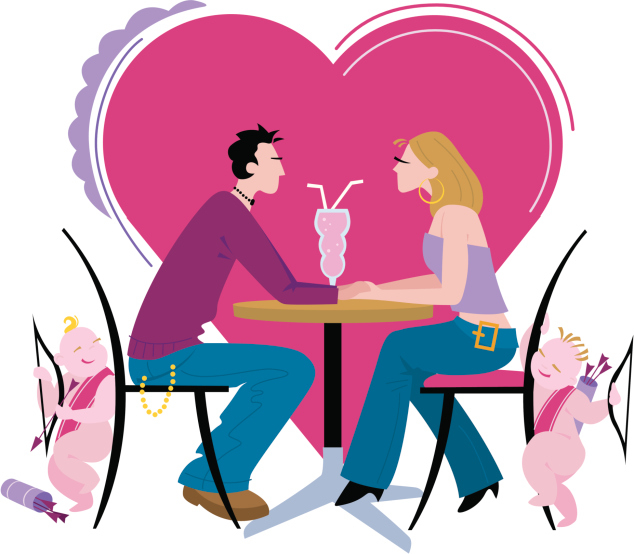 In Venice, California, a church draws people who are open to creative ways of coming together as a community and expressing faith. An actor and activist founded the church called Full Circle with the intent to draw curious and open-minded people to define what spirituality means to them, individually and collectively.
In Venice, California, a church draws people who are open to creative ways of coming together as a community and expressing faith. An actor and activist founded the church called Full Circle with the intent to draw curious and open-minded people to define what spirituality means to them, individually and collectively.
New personality research indicates that people tend to select dating partners based on the level of religious belief and perceived openness to new experiences of the other person. Those who have strong religious inclination tend to prefer potential romantic partners who regularly attend church, and also those who do not express strong indicators of being open to new ideas.
Coming to Full Circle
The greater L.A. area is known for a rich history of social religious experiments. From the founders of Theosophy and the Four Square Gospel in the early 1900s, on through Scientology and various awakening movements of the later years of the 20th century, the area has spawned countless faiths, cults, and new religions.
Working to define something new in the space where faith and community come together, an actor active in the Occupy movement in 2011 felt inspired to create an organization that would continue to bring people together after the momentum of that social cause ebbed. Renting a space near the Abbot-Kinney area in Venice on the west side of L.A., he set up a church called Full Circle.
In weekly ceremonies such as "Activ888," participants affirm what it is they want to realize with their presence at the church. Statements include "not taking things personally" as well as desires for joy and peace. Everyone states, "so it is" after each person takes a turn.
Some have called the gathering a clubhouse or hangout for the young, fit, attractive crowd that attends services there. Others point to the lack of religious dimension in the lives of most people under 30 as the need to be filled by the gatherings. Recent Pew Institute research shows that a third of "millenials" born in the mid-'80s and beyond claim no religious affiliation, compared to only nine percent of those over 65 who answered "none" to the religious affiliation question.
Dating Within the Faith
The preference of many religious people to date others of similar spiritual beliefs has been known to social scientists for some time. The reasons given for the perceived bias toward faithful courting and marrying within the flock vary.
New research indicates that both religious and non-religious minded people demonstrate a preference in selecting romantic partners based on the open-mindedness of the other person. Data indicate that the less religiously inclined an individual is, the less likely they are to agree to date someone who expresses religious conviction and regular attendance at church.
Like-Minded Partners
Participants were first evaluated on their own degree of religious faith and other personality details. The researchers looked into how the people in the study selected partners to date, with a focus on the different ways that religious and unreligious people perceive "openness." In personality studies, the notion of being open-minded is generally associated with intellectual curiosity.
Each participant was given forty choices of people to date. The potential partners expressed a range of regularity in attending religious worship services. Results indicated that people who expressed a non-religious outlook were less likely to pick a partner who reported frequent attendance at church.
Social Life and Church Life
A second study allowed participants to choose from people who not only had expressed their regularity of attendance at worship services but also made statements about being open to new experiences. Religious people preferred those who attend church regularly and also those who did not express strong statements of open-mindedness, such as "I do not pretend that my ethical system is the only one."
Those people who tend toward a lack of religious faith, however, strongly prefer those who express less religious faithfulness and more open-mindedness. For many people, church is often perceived as a social opportunity, and the choice of which church to attend has important implications in the person's life, just as the choice of whom to date or marry does.



